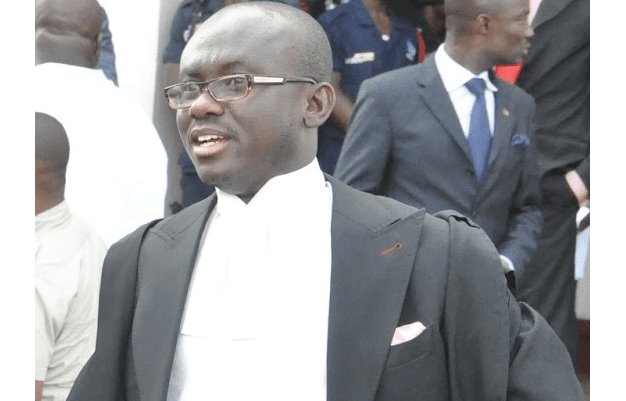Court sets aside US$15.3M galamsey judgement
A High Court in Kumasi last Friday, July 30, 2021, set aside a judgement entered against the Government in 2020, for unlawful seizure of Heritage Imperial Company’s machinery, equipment and monies seized by the task force of the Inter-Ministerial Committee on illegal mining in 2018.
The court presided over by Justice Samuel Diawuo had exactly a year ago, held in a judgement on July 30, 2020, that the invasion of the plaintiff’s mining site and the seizure of excavators and equipment was unlawful.
The court, as a result, ordered recovery of the sum of US$15,304,714.20 being the value of machinery and equipment seized from the plaintiff’s site by the Inter-ministerial task force on illegal mining, on December 6, 2018, or its current value in cedis, general damages of GHS500,000; and costs of GHS 100,000, against the State.
However, on July 13, 2021, the Attorney-General and Minister of Justice, Godfred Yeboah Dame filed an application for an order setting aside the judgement as a nullity and vitiated by a lack of jurisdiction of the High Court to entertain the action.
Arguing the application on July 23, 2021, Mr Dame, contended that the commencement of the action by the plaintiff without regard to the mandatory statutory stipulations of the State Proceedings Act, 1998 (Act 555), was unlawful.
He contended that the order for payment by the Government of Ghana of the sum of US$15,304,714.20, was manifestly unlawful and utterly without basis, as no endorsement on the writ of summons issued in action supported same.
Mr Dame explained that “the rules of court requited a writ of summons to be endorsed with a concise statement of the nature of the claim made, or the relief or remedy required in the action. In no part of either the writ of summons or the pleadings of the respondent did the respondent claim the sum of US$15,304,714.20 against the applicant herein.”
He said the relief of US$15,304,714.20 granted by the court was a material and specific one, clear notice of which had to be given on the writ of summons and statement of claim. The court, thus, did not have jurisdiction to grant the relief of US$15,304,714.20.
Mr Dame argued that the plaintiff failed to indicate on its writ of summons whether the claims against the defendants were either jointly and severally or jointly or severally.
The judgement of the Court also failed to indicate same, and to this extent, the reliefs granted were unenforceable.
The Attorney-General “asserted that the default in stating whether reliefs claimed by the plaintiff or granted by the court were jointly and severally or jointly or severally was a fundamental and incurable defect which avoids the entire judgement as the first defendant, the Ministry of Lands and Natural Resources did not have the capacity to be sued under Ghana law”.
He also contended that the failure of the plaintiff to claim the relief of US$15,304,714.20 on its writ of summons was clearly intended to deceive the court and deprive the State of appropriate revenue, as appropriate filing fees were paid on the reliefs awarded to Heritage Imperial Company.
The act of the plaintiff the concealing the specific cost of the equipment it alleged to have acquired, according to Mr Dame, was one calculated at overreaching not only the court, but also the Government of Ghana, and therefore, ought not to be rewarded by a court of law and equity.
Delivering the ruling, the court presided over by Justice Diawuo held that a Superior Court has inherent jurisdiction to set aside its own judgement when same was plainly entered without jurisdiction or is offensive to any provision of the laws of Ghana.
He said the failure of the plaintiff on its writ of summons was a fundamental defect, especially as same resulted in the State being deprived of the fruits of the appropriate filing fees.
Mr Dame said the failure of a party to indorse the specific relief claimed by that party on its writ of summons, with the consequential effect of the plaintiff not paying appropriate filing fees meant that the court had no jurisdiction to consider the case placed before it on the reliefs awarded to Heritage Imperial Company. The act of the plaintiff in concealing the specific cost of the equipment it alleged to have acquired, according to Mr Dame, was one calculated at overreaching not only the court, but also the Government of Ghana, and therefore, ought not to be rewarded by a court of law and equity.
Delivering the ruling, the court presided over by justice Diawuo held that a Superior Court has inherent jurisdiction to set aside its own judgement when the same was plainly entered without jurisdiction or is offensive to any provision of the laws of Ghana.
Mr Dame said the failure of a party to indorse the specific relief claimed by that party on its writ of summons, with the consequential effect of the plaintiff not paying appropriate filing fees meant that the court had no jurisdiction to consider the case placed before it.




So from 12.25 pm on August 3 no one in your news outlet has read over this story to know that you repeated 2 paragraphs. Smh untouchable journalists always right abi